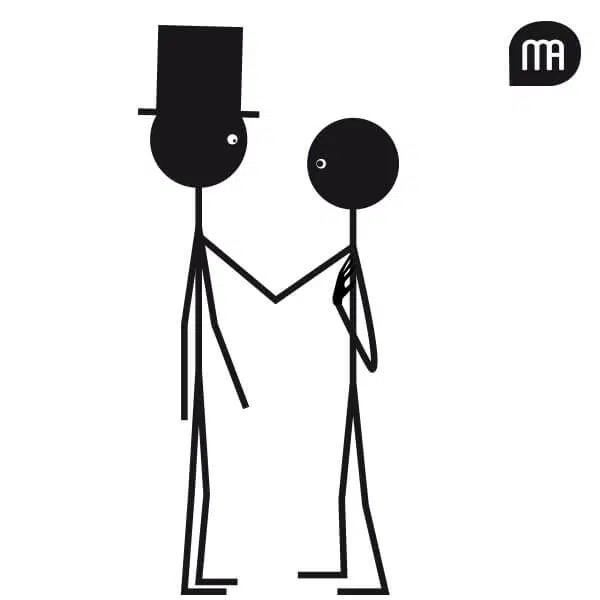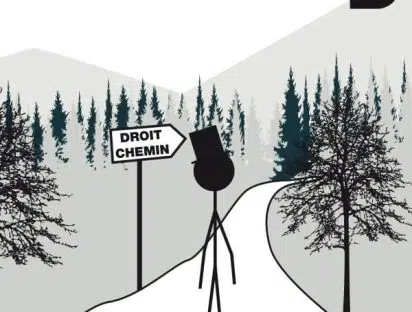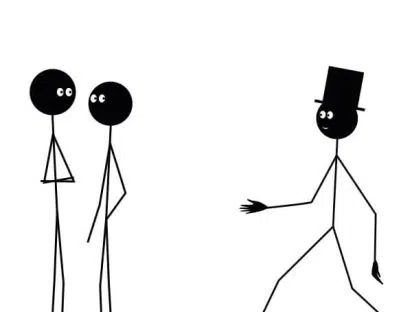
The value of gratitude
The fact is that this concept is placed at such a high level, perhaps the highest level, in the scale of thanks. The fact that the adjective “profound” often accompanies the word indicates the eminence of gratitude. An eloquent example is the words of U.S. Senator Chuck Grassley. In July 2018, he stated that “whistleblowers deserve our profound gratitude” (3). If the word “gratitude” is impressive, it is because it has as its origin “grace.” It comes from the Latin gratia, which itself derives from the adjective gratus: “welcomed with favour, grateful.” Gratia means “thankfulness,” “favor, credit, influence.” In a religious, specifically Christian sense, grace refers to “divine favor” (4). According to the French Westphal Bible dictionary, grace is “a disposition of God towards men, a way of being and acting that is essentially inspired by love” (5). The Westphal Dictionary notes that, especially in Paul’s letters in the New Testament, gratitude “is made of trust and worship [to] God. James Ceaser, professor of political science, expresses the importance of man’s gratitude to God for Christianity and Judaism – note the last sentence of the quotation, taken in part from Noah Webster’s American Dictionary of the English Language (1828):
“Its centrality turns most on the biblical view that there is no necessity for God to have created the heavens and earth, made man in his likeness, or shown his grace. God is accordingly the ultimate benefactor, having given freely these greatest of gifts. For this reason, to cite Webster again, ‘The love of God’ is considered the ‘sublimest gratitude’.” (6)
Does gratitude admit degrees?
The phrase “sublimest gratitude” suggests that gratitude has degrees. But this possibility raises questions. Ceaser thus observes that, for some, God’s gratitude prevails over gratitude among human beings on the grounds that the latter concerns the things of the material world. Others, on the other hand, pointed out that the practice of religious gratitude reinforced secular gratitude, understood as “a sentiment of kindness or good will towards a benefactor,” or, in Spinoza’s case, “the desire or zeal springing from love, whereby we endeavour to benefit him, who with similar feelings of love has conferred a benefit on us” (7). If gratitude admits degrees, they are not reduced to a calculation of reciprocity, in search of the appropriate answer to the question: “How much should I give my benefactor in return for the service he has given me?” It goes beyond, as this quote from the journal Etudes suggests:
“Like gratuity, gratitude derives from the Latin term gracia, “grace.” It is a breach in the economy of exchange and equity, because it gives way to the unpredictable and the extra gift.” (8)
Is it because of their disinterestedness, that French law considers as essential to the status of whistleblowers (9), that they can deserve our gratitude? The gratuity inherent in gratitude would somehow respond to their disinterest.
Showing the right way
Another argument can be found in a recent article published on the Australian website Probono Australia, which specialises in the social and charitable sector. Its author, Oliver May, defends the social role of whistleblowers. He uses the word “gratitude” to conclude his remarks:
“Whistleblowing is a key part of transparent, accountable and safe workplace culture. Charities, of all sectors, should embrace it. We need to see whistleblowing as business-as-usual; an important part of a modern, responsible charity’s approach to managing integrity risks. Our first reaction to a disclosure should not be horror, but gratitude. After all, none of us knows what the future holds – while today you may be the manager dealing with a whistleblower, tomorrow you may be standing in their shoes.”
It is certainly necessary to understand the fact of entering, through imagination, the role of a whistleblower, as a way of grasping the scope of that role and the commitment of its holder to truth and the general interest. If gratitude is to be felt to whistleblowers, it is not so much because of the actions they have done, or the courage they have assumed, as because they show us the right way. Alain Anquetil (1) See respectively (all in French) “Procès du Mediator : ‘Ils ont brisé ma vie,’” Le Parisien, 22 September 2019 ; “Lanceurs d’alerte : ‘Je demande la reconnaissance de la France pour service rendu,’” Public Sénat, 23 September 2019 ; “Un lanceur d’alerte reçu au Parlement européen,” Le Monde, 2 June 2015. (2) See also this comment by an Internet user about Laura Pfeiffer, a Tefal (a French company) labour inspector, who claims to be a whistleblower: “Well done, Madam, not going to bed is really very brave (and probably very stressful)” (“Lyon : Procès d’une ‘lanceuse d’alerte’ poursuivie par Tefal,” 20 Minutes, 13 September 2019). (3) “Grassley: Whistleblowers Deserve Our Profound Gratitude,” July 30, 2018. (4) The quotations are from the Dictionnaire historique de la langue française Le Robert, 4th edition, 2010. (5) Alexandre Westphal Bible Dictionary, article “Grâce” (in French), available on the website levangile.com. (6) Ceaser, J. W., “No Thanks to Gratitude,” Policy Review, 170, 2011, pp. 59-73. (7) Quotations from Noah Webster’s American Dictionary of the English Language (1828) and Spinoza’s The Ethics, translated from the Latin by R. H. M. Elwes, 1883, Project Gutenberg. The complete definition proposed by Webster is as follows:
“An emotion of the heart, excited by a favor or benefit received; a sentiment of kindness or good will towards a benefactor; thankfulness. Gratitude is an agreeable emotion, consisting in or accompanied with good will to a benefactor, and a disposition to make a suitable return of benefits or services, or when no return can be made, with a desire to see the benefactor prosperous and happy.”
(8) “La Gratitude,” Etudes, 12, 2010, pp. 667-675. (9) According to Article 6 of the French Act No 2016-1691 of 9 December 2016. (10) O. May, “Three good reasons to be grateful for whistleblowers,” 11 June 2019. [cite]




